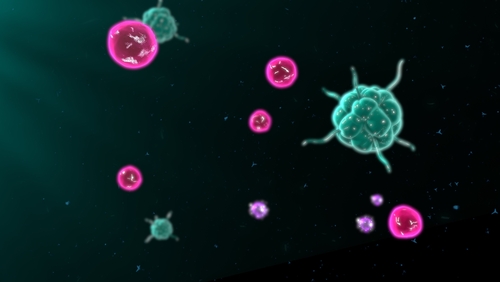This post was originally published on this site
The donor-derived, or allogeneic CAR T-cell therapy candidate UCARTCS1 has been administrated to the first patient in an ongoing Phase 1 trial for relapsed/refractory multiple myeloma.
The study (NCT04142619), called MELANI-01, plans to enroll up to 18 adults whose multiple myeloma relapsed after prior treatment. It is currently recruiting at MD Anderson Cancer Center, in Houston, and at Hackensack Meridian Health, in New Jersey. Another testing site at Weill Cornell Medicine, in New York, is expected to open soon. More information on clinical sites and contacts is available here.
The researchers will evaluate the safety and efficacy of multiple doses of UCARTCS1, being developed by Cellectis. The trial also will assess the transplanted cells’ ability to expand and survive inside the body.
After determining an optimal dose to be used in Phase 2, participants will be invited to continue treatment with this investigational treatment in an expansion study. MELANI-01 is expected to conclude in November 2022.
According to Cellectis, UCARTCS1 is the first allogeneic CAR-T cell therapy candidate cleared by the U.S. Food and Drug Administration to enter clinical trials for relapsed/refractory multiple myeloma.
“In taking this next clinical step, we look forward to deepening our understanding of UCARTCS1 as a potential new treatment option for relapsed/refractory multiple myeloma patients in the future,” André Choulika, PhD, chairman and CEO of Cellectis, said in a press release.
CAR T-cell therapies commonly use a patient’s own immune cells, which are harvested and modified in the lab to recognize and kill tumor cells. These cells are then expanded to several million and injected back into the patient to fight the cancer. This is called autologous, or patient-derived therapy.
Although such therapies have had positive results against multiple cancer types, scientists are not always able to collect enough cells from a patient to create the therapy. In addition, development and expansion of CAR T-cells requires time, which is in opposition to the prompt treatment needed for multiple myeloma.
To overcome these issues, Cellectis has been developing its “off-the-shelf” CAR T-cell products for diverse blood cancers — including UCARTCS1 for multiple myeloma.
Instead of using a patient’s own cells, it uses immune T-cells from healthy donors. These donor cells must first be modified to avoid potential damage due to graft versus host disease — the attack of the host’s cells by transplanted cells.
UCARTCS1 was specifically designed to target SLAMF7, or CS1 — called signaling lymphocyte activation molecule family member 7 — a protein found on the surface of myeloma cells. But as T-cells also produce SLAMF7, Cellectis used the TALEN gene editing technology to “knock out” or remove the protein from the surface of engineered T-cells.
This approach is intended to eliminate the patient’s T-cells to avoid cross reaction and create room for the transplanted cells to fight cancer.
“This first patient dosing for our MELANI-01 clinical trial is an important advancement, as our team has worked tirelessly to develop and take the CS1 target from the lab to the clinic,” Choulika said.
The post First Multiple Myeloma Patient Dosed With CAR T-Cell Therapy UCARTCS1 in Phase 1 Trial appeared first on Myeloma Research News.
The post First Multiple Myeloma Patient Dosed With CAR T-Cell Therapy UCARTCS1 in Phase 1 Trial appeared first on BioNewsFeeds.


